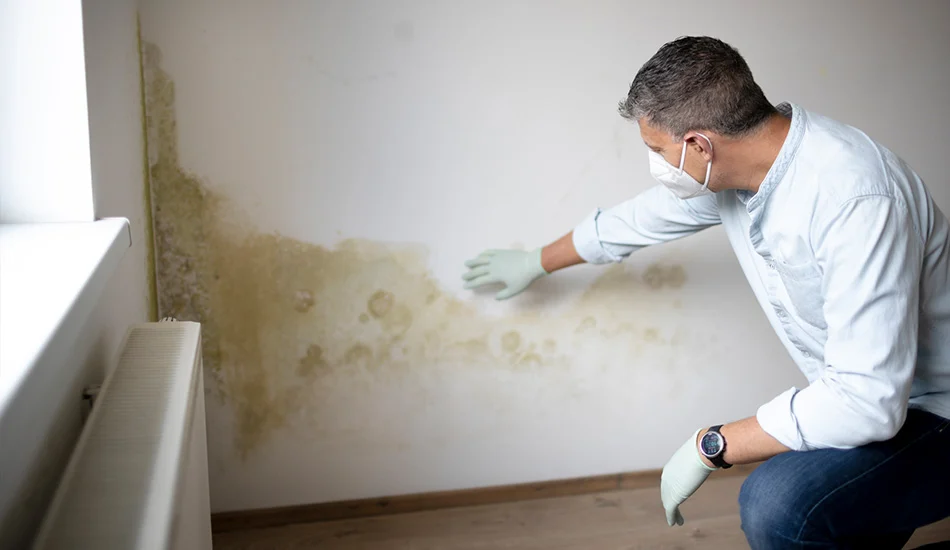Exposure to Mold Testing Services Houston TX can lead to various health risks, ranging from mild allergic reactions to severe respiratory issues and other health complications.

Here’s a comprehensive overview of the health risks associated with mold exposure:
- Allergic Reactions:
- Mold spores are potent allergens that can trigger allergic reactions in susceptible individuals. Common symptoms of mold allergies include sneezing, runny or stuffy nose, itchy or watery eyes, coughing, wheezing, throat irritation, and skin rash or hives. Allergic reactions to mold can exacerbate existing respiratory conditions such as asthma.
- Asthma Exacerbation:
- For individuals with asthma, exposure to mold can worsen asthma symptoms and lead to asthma attacks. Mold spores can irritate the airways, causing inflammation, bronchoconstriction, and increased mucus production, which can trigger wheezing, shortness of breath, chest tightness, and coughing. Severe asthma attacks can be life-threatening and require immediate medical attention.
- Respiratory Symptoms:
- Prolonged exposure to mold can cause a variety of respiratory symptoms, even in individuals without pre-existing respiratory conditions. These symptoms may include persistent coughing, throat irritation, nasal congestion, sinusitis, shortness of breath, chest discomfort, and respiratory infections such as bronchitis or pneumonia.
- Hypersensitivity Pneumonitis:
- Hypersensitivity pneumonitis, also known as “mold lung,” is a rare but serious lung condition caused by repeated exposure to mold spores. It occurs when the immune system overreacts to inhaled mold particles, leading to inflammation and scarring of the lung tissue. Symptoms of hypersensitivity pneumonitis include cough, shortness of breath, fatigue, fever, and weight loss. If left untreated, the condition can progress to irreversible lung damage.
- Fungal Infections:
- Mold exposure can increase the risk of fungal infections, particularly in individuals with weakened immune systems. Mold spores can colonize the respiratory tract or enter the body through open wounds, leading to fungal infections such as aspergillosis, candidiasis, or histoplasmosis. These infections can cause a range of symptoms depending on the type of fungus involved and the affected area of the body.
- Mycotoxicosis:
- Mycotoxicosis refers to poisoning caused by exposure to mycotoxins produced by certain types of mold. While mycotoxicosis is relatively rare in humans, exposure to high levels of mycotoxins can cause a variety of symptoms, including headache, dizziness, fatigue, nausea, vomiting, diarrhea, abdominal pain, skin irritation, neurological symptoms, and immune suppression. Long-term exposure to mycotoxins may increase the risk of developing chronic health problems.
- Neurological Symptoms:
- Some studies suggest that exposure to mold and mycotoxins may be associated with neurological symptoms, including cognitive impairment, memory loss, difficulty concentrating, mood changes, anxiety, depression, and neurological disorders such as Parkinson’s disease or multiple sclerosis. However, more research is needed to fully understand the link between mold exposure and neurological health.
- Immunosuppression:
- Prolonged exposure to mold and mycotoxins may weaken the immune system, making individuals more susceptible to infections, allergies, and other health problems. Immunosuppression can compromise the body’s ability to fight off pathogens and may increase the risk of developing chronic diseases.
- Sensory Irritation:
- Mold exposure can cause sensory irritation in the eyes, nose, throat, and skin. Individuals may experience symptoms such as eye irritation, redness, itching, burning sensation, nasal congestion, sneezing, sore throat, hoarseness, and skin irritation or rash upon contact with mold or moldy materials.
- Increased Risk of Other Health Conditions:
- While the direct health effects of mold exposure are well-documented, research also suggests that mold exposure may be associated with an increased risk of developing other health conditions, including cardiovascular disease, respiratory infections, autoimmune diseases, and certain cancers. However, more studies are needed to establish causality and understand the underlying mechanisms.
Additionally, if you suspect Mold Testing Services Houston TX growth in your home, consider hiring a professional mold inspection and remediation service to assess the extent of the problem and implement appropriate measures to address it.
Mold Testing Houston
5926 Dellfern Dr, Houston, TX 77035, United States
1-832-409-2125
https://maps.app.goo.gl/57NPnEoXaPCC4dYH9